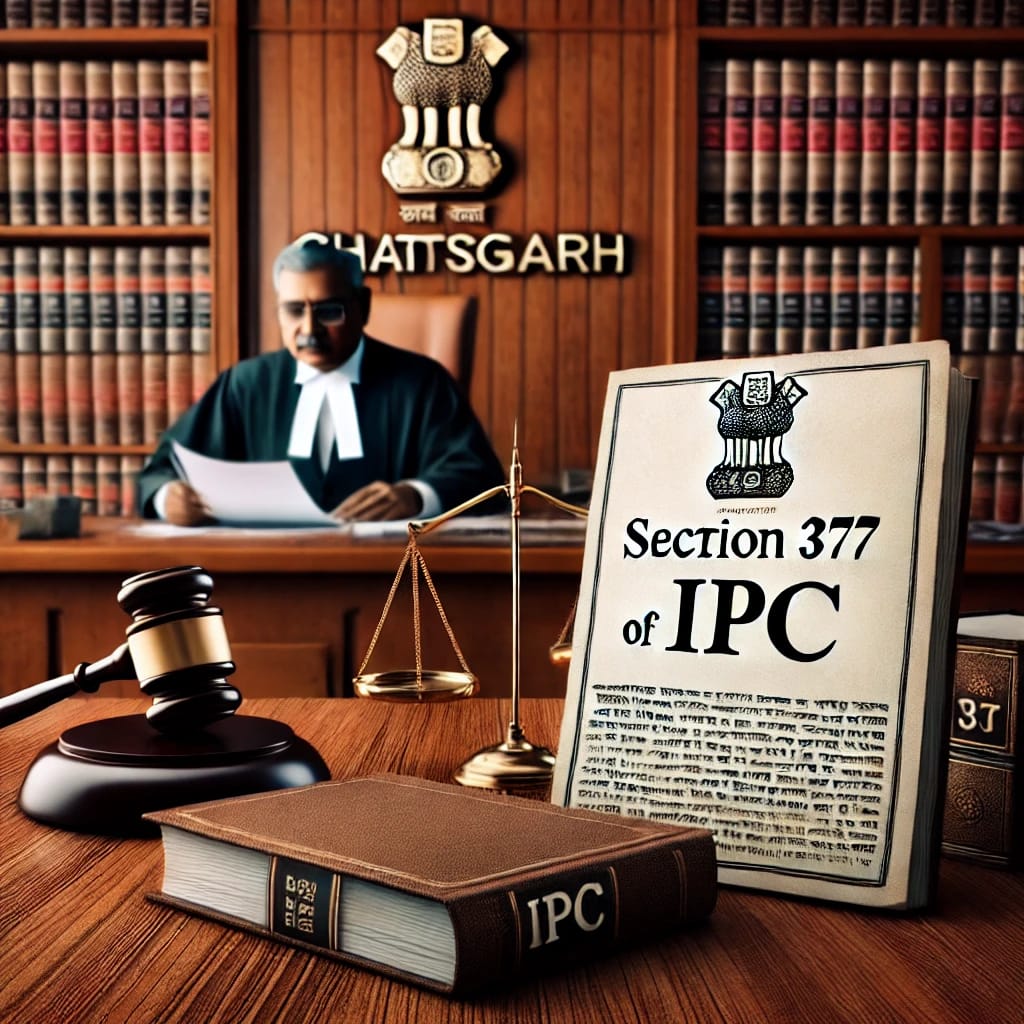Rakia Imran
On 12th February, 2025, a Single-Bench comprising Justice Narendra Kumar Vyas, of the Chhattisgarh High Court held that a husband cannot be prosecuted for rape or unnatural offences under Sections 375 and 377 of the IPC for engaging in non-consensual anal sex or other forced sexual acts with his adult wife. Justice Narendra, in this particular case , relied on Exception 2 to Section 375 IPC, which clarifies that sexual acts between a husband and wife are not considered rape unless the wife is under 15 years of age.
“From perusal of Section 375, 376 and 377 IPC it is quite vivid that in view of amended definition of Section 375 IPC, offence under Section 377 IPC between husband and wife has no place and, as such rape cannot be made out. It is pertinent to mention here that in the amendment in Section 375 IPC in the year 2013, Exception- 2 has been provided which speaks that sexual intercourse or sexual acts by a man with his own wife is not a rape and therefore if any unnatural sex as defined under section 377 is committed by the husband with his wife, then it can also not be treated to be an offence,” the Court held.
The defense counsel argued that the conviction of the accused was primarily based on the dying declaration of the victim, which itself was questionable in terms of authenticity. Additionally, the counsel pointed out that the trial court had overlooked the statements of two witnesses who had testified that the deceased had been suffering from piles after her first childbirth, which often caused bleeding from her anus and abdominal pain. On the other hand, the prosecution opposed this argument, asserting that the trial court had correctly convicted the accused based on the evidence presented and that no interference with the judgment was warranted. The High Court, after hearing both sides and analyzing the evidence, proceeded to examine the provisions under Sections 375 and 377 of the Indian Penal Code. The Court noted that under Section 375, rape is defined as penetration of the penis into any body part, including the vagina, urethra, or anus of a woman. However, it further observed that as per Exception 2 to Section 375, any such act between a husband and wife does not constitute rape, even in the absence of consent.
“It is quite vivid that the definition of rape as provided under Section 375 includes penetration of penis in the parts of the body i.e. vagina, urethra or anus of a woman for which consent is not required then unnatural sex cannot be made as unnatural offence between husband and wife, as such apparently, there is repugnancy in these two situations in the light of definition of Section 375 and unnatural offence of Section 377,” the High Court said.
The case against Gorakhnath Sharma arose when his wife was hospitalized due to severe pain following an unnatural sexual act, allegedly committed by him by inserting his hand into her anus. Despite medical intervention, she succumbed to her injuries. In her dying declaration, she asserted that she became critically ill due to the act perpetrated by her husband. Consequently, Sharma was charged under Sections 375 (rape), 377 (unnatural offences), and 304 (causing death by negligence) of the IPC. The post-mortem examination determined that she had died from peritonitis and rectal perforation. However, during the trial, some witnesses turned hostile, and the Executive Magistrate who recorded her statement stated in court that although the deceased had mentioned her husband’s actions, this detail was omitted from the declaration. Despite this, the trial court found Sharma guilty of all charges, sentencing him to ten years in prison. Following his conviction, he appealed the verdict before the High Court.
In addressing the conviction under Section 304 IPC, the High Court found that the trial court had not provided any concrete reasoning or findings to justify its application. The Court noted that no direct link was established between the alleged acts of the accused and the offence of causing death by negligence. Given this legislative gap, the High Court declared the conviction under Section 304 to be perverse and patently illegal. Accordingly, the appeal was allowed, and Sharma was acquitted of all charges.
Case Name: Gorakhnth Sharma v. State of Chattisgarh
Citation: CRA No. 891 of 2019
Bench: Justice Narendra Kumar Vyas

